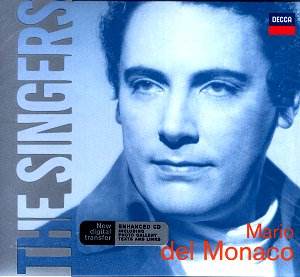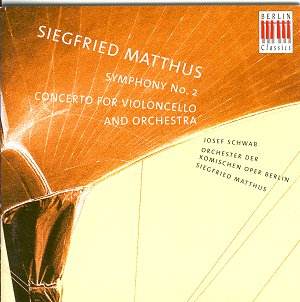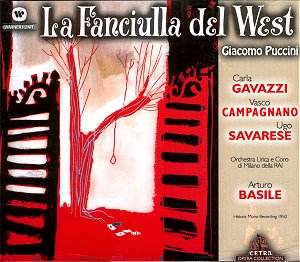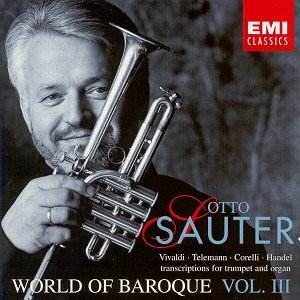 Composer: Mario Del Monaco
Composer: Mario Del Monaco
Works: Arias by Giordano, Puccini, Halévy, Bellini, Verdi, Wagner, and other sung pieces by Bizet, Franck, Gastaldon, Bernstein, and Brodsky
Performers: Mario Del Monaco, tenor
Recording: Various locations in Italy, Austria, and France, 1953-1969
Label: Decca
Mario Del Monaco, the illustrious tenor born in 1915, occupies a significant chapter in the annals of operatic history, particularly noted for his formidable presence on the stages of La Scala and the Metropolitan Opera during the mid-20th century. This collection, part of Decca’s “The Singers” series, offers a curated glimpse into his vocal prowess through a selection of arias that span a spectrum of operatic and popular genres. While the idea of revisiting a legendary artist through such a medium is commendable, the results reveal both the triumphs and limitations inherent in Del Monaco’s artistry when stripped of the theatrical context in which he thrived.
Del Monaco’s voice, characterized by its virile, open-throated quality, is undeniably captivating in the heroic roles of Andrea Chénier, Pollione, and Otello. His recording of “Un dì, felice, eterea” from Giordano’s Andrea Chénier (track 1) illustrates the sheer power and dramatic conviction that defined his stage persona. The climactic moments are delivered with an exhilarating force that undoubtedly would have electrified live audiences. Yet, such raw intensity often comes at the cost of subtlety; the delicacy of phrasing that one might expect from a tenor of his caliber occasionally gives way to a more bombastic approach. This is particularly evident in the aria from Verdi’s Ballo in Maschera (track 7), where the initial lyrical line dissipates into a display of sheer volume devoid of the elegance that the music demands.
The recording quality reflects the technology of its time, capturing Del Monaco’s voice with clarity but also revealing a certain lack of warmth that can detract from the overall listening experience. The engineering choices, while competent, do not fully convey the richness of his timbre, leaving some passages feeling somewhat hollow. This is especially noticeable in the Wagner extracts (tracks 10-13), where one senses a potential for greatness that remains unfulfilled due to a lack of stylistic nuance. Del Monaco’s attempts at Wagnerian repertoire hint at the dramatic weight he could have brought to such roles, yet they suffer from a lack of the nuanced interpretative skills that define true heldentenors.
The repertoire choices themselves present a curious mix; while they showcase Del Monaco’s strengths, they also expose his limitations. The inclusion of Bizet’s Agnus Dei and Bernstein’s “Tonight” from West Side Story feels somewhat forced, betraying a disconnect between the singer’s natural gifts and the material. It is in the more traditional operatic arias that Del Monaco truly shines, allowing his dramatic instincts to flourish. This selection, however, does not fully represent the depth of his discography, especially when compared to other notable recordings, such as those found in the Grandi Voci series, where he is more effectively showcased.
The booklet accompanying the CD, while informative, lacks the depth one might hope for, offering only a cursory glance into Del Monaco’s storied career without engaging more substantially with the music or the historical context of the recordings. This oversight diminishes the potential for a richer understanding of the artistry on display.
Del Monaco’s legacy as a tenor is undeniably marked by his powerful vocal delivery and his ability to command the stage. However, this compilation serves as a reminder that the qualities that made him a star in the opera house do not always translate seamlessly to the recording studio. The collection shines in moments of sheer vocal strength, particularly in the heroic repertoire, yet falters when confronted with the need for subtlety and interpretative finesse. While it celebrates a significant figure in opera history, it does so with a sense of ambivalence, revealing both the majesty and the limitations of a voice that was, at its best, a force of nature.



